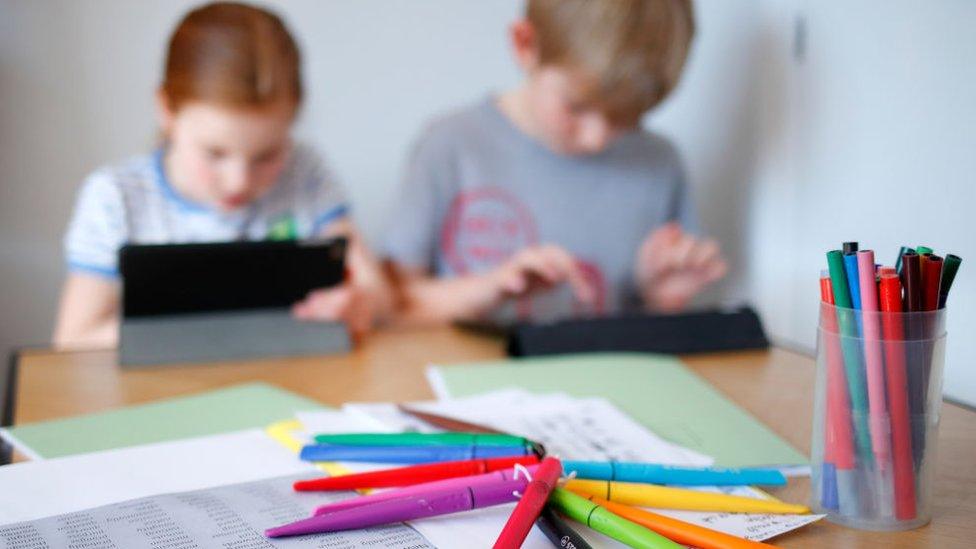Digital divide: 1.5 million UK homes without internet, Ofcom finds
- Published
- comments

About 1.5 million homes in the UK still do not have internet access, a report by Ofcom has found.
It also found 20% of children did not always have access to a device for online learning while schools were closed.
Ofcom (the Office of Communications) oversees UK TV, radio, mobile and broadband internet and makes sure businesses follow the rules.
The figures are part of the organisation's yearly study of online and media habits in the UK, which this year spans all three lockdowns.
What is the digital divide?
Eva explains how she struggled to get the tech for remote learning
Ofcom said in total 6% of the homes had no internet access at all, at the time the study was carried out last month.
Among children, tablets were the most popular device for five to 15-year-olds in 2020, although 91% of 12 to 15-year-olds had their own smartphones.
It was also found that 48% of three to four-year-old pre-schoolers had their own tablets.
But this isn't the same for other children, who have limited or no access to these devices.
This is called the digital divide.
WATCH: Newsround spoke to Freddie and Abdullah about their experiences
The digital divide can happen for lots of different reasons, such as families not being able to afford new devices, or extra internet data, or because families have to share a device between them all.
There can also be a 'divide' when it comes to accessing reliable, cheap and quick internet in rural (countryside) areas compared to urban (towns and cities) places.
This can all mean that whilst some children can do their schoolwork on a digital device, other children are missing out on learning.
We've got to heal this digital divide. And I think the government's got to act pretty quickly.
Former Prime Minister Gordon Brown called for a national digital plan from the government and Ofcom.
"We have a generation that has lost out for more than a year on the education that they need, and will lose out when it comes to workforce qualifications, job prospects, and then income," he told the Â鶹ԼÅÄ.
TikTok and gaming level up during lockdown
The Ofcom report also revealed that just over half of 12 to 15-year-olds said they had had a negative experience online in the past year, with the most common being someone they didn't know trying to befriend them.
Six out of 10 five to 15-year-olds said they made their own videos online and nearly half said they watched content on TikTok.
"We have seen a big rise in the use of TikTok during last year particularly among girls," said Yih-Choung Teh, strategy and research group director at Ofcom.
Gaming also became increasingly popular during lockdown, with seven out of 10 five to 15-year-olds playing online games.
- Published22 March 2021
- Published10 February 2021
- Published5 January 2021
